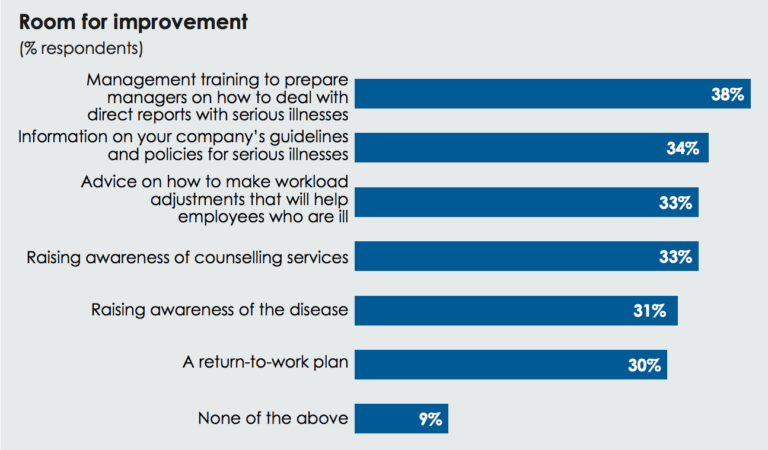Did you know that about 46% of people who have cancer are of working age? To employers, this might come as a surprise, especially since many cancer patients and survivors remain active at work before, during, and after cancer treatment. Employers can — and should be — prepared to help employees with cancer throughout the entire journey from diagnosis to recovery.
More People Are Living With a Chronic Condition Than Ever Before
More than 150 million adults in the American workforce have at least one chronic health condition such as cancer, arthritis, cardiovascular disease, diabetes, depression. About 1.73 million of those adults were diagnosed with cancer last year, and the number of employees living with cancer is expected to continue increasing in the near future.
Being diagnosed with a chronic disease is a life-altering event, but it doesn’t have to be the end of a person’s career. Continuing to work while living with cancer can be incredibly important for a number of reasons. Not only does it provide much-needed income to cover medical expenses, it allows access to employer-sponsored healthcare and important social support networks.
Strategies That Support Employees With Cancer
To help those who continue to work, it’s critical that employers offer disease management solutions to best support employees during this extremely difficult time. Aside from providing an employee wellness program that promotes preventive measures like health assessments and healthy lifestyle changes as well as tools for chronic condition management, employers should offer and support:
- Flexible work schedules to accommodate regular doctor’s appointments.
- Taking a leave of absence that guarantees the option to return to work.
- Health insurance for all eligible employees.
- Guidance for sharing the news with coworkers or a supervisor and a safe space in which to do so.
- Financial planning for medical expenses.
Currently, employers still have some work to do to ensure employees with cancer or other chronic conditions are truly supported in the workplace. According to an Economic Intelligence Unit Survey, respondents felt that their companies still needed to improve in the following areas:

